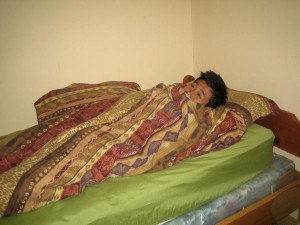The Ebola virus disease is a serious ailment that often results to death. Out of the 5 strains of the Ebola virus, 4 are known to cause disease among humans.
Indications
The Ebola virus disease has an incubation period of 2-21 days. Take note that humans are not considered communicable until the symptoms develop.
Initial symptoms

- Fever that arises abruptly
- Sore throat
- Fatigue
- Headache
- Muscle ache
Late symptoms
- Diarrhea
- Vomiting
- Liver and kidney problems
- Rash
- Bruising
- Bleeding both internally and externally, including bloody gums and stool
- Low level of white blood cells and platelets and elevated level of liver enzymes in the laboratory tests
How does it spread?
It is believed that the virus is transmitted from wild animals to humans. These wild animals include monkeys, fruit bats, chimpanzees, gorillas and antelopes. Take note that humans become infected by contact with the fluids or organs of infected animals.
Among humans, the virus is transmitted via direct contact with blood, organs, secretions and other body fluids of infected individuals. The virus can also enter the body via broken skin or mucus membranes. Transmission also occurs from direct contact with objects, materials and surfaces contaminated by these fluids.
Management of Ebola virus disease
Even at the present, there is no specific and proven treatment for Ebola virus disease. Potential treatments are still under testing which includes immune therapies, blood products and drug therapies.
One promising medication therapy involves 3 monoclonal antibodies that are designed to stick to the Ebola virus and prevent it from attaching to the cells.
Currently, the treatment is aimed on treating the symptoms with fluids and oxygen as well as managing other infections that might arise. These supportive measures can help the individual cope with the condition and improves survival.
When to seek medical care
If an individual develops symptoms and has been to an area with reported cases of the Ebola virus disease or exposed to an individual suspected with the condition, it is vital to seek immediate medical care.
Prompt medical care is vital in improving the rate of survival. Additionally, it is vital to control the spread of the disease.
